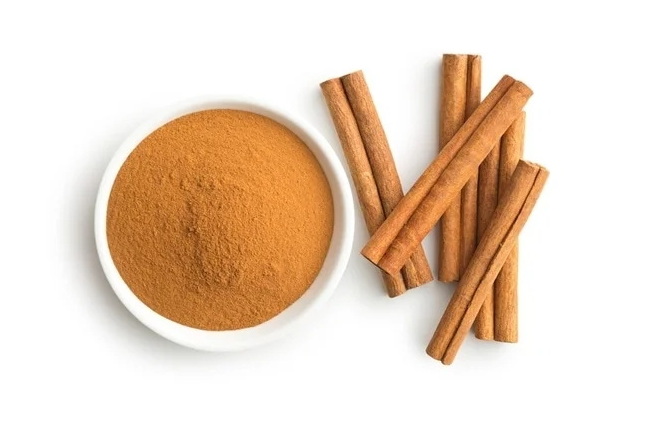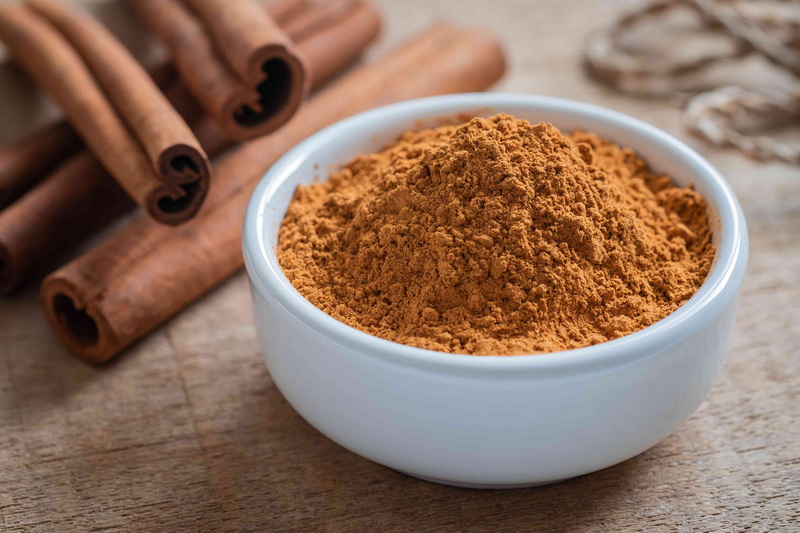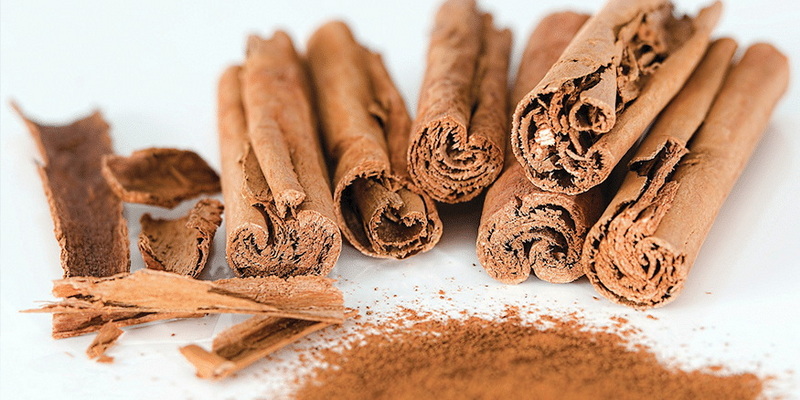Content Menu
● Introduction to Cinnamon Bark Extract
>> Cinnamon Bark Extract Composition
● Health Benefits of Cinnamon Bark Extract
>> 1. Antioxidant Properties
>> 2. Anti-Inflammatory Effects
>> 3. Blood Sugar Regulation
>> 4. Cardiovascular Health
>> 5. Neuroprotective Effects
>> 6. Antimicrobial Properties
>> 7. Cancer Prevention
>> 8. Digestive Health
● Preparing Cinnamon Bark Extract
>> Cinnamon Tea Recipe
>> Cinnamon Supplements
● Safety Considerations
● Historical Use of Cinnamon
● Modern Research on Cinnamon
● Conclusion
● FAQs
>> 1. What are the main components of cinnamon bark extract?
>> 2. How does cinnamon bark extract help with blood sugar regulation?
>> 3. Can cinnamon bark extract prevent cancer?
>> 4. Is cinnamon bark extract safe for everyone?
>> 5. How can I incorporate cinnamon bark extract into my diet?
● Citations:
Cinnamon bark extract, derived from the inner bark of the cinnamon tree, has been a staple in traditional medicine for centuries. It is renowned for its rich flavor and aroma, but more importantly, it offers a multitude of health benefits. This article delves into the top advantages of incorporating cinnamon bark extract into your diet, exploring its potential to improve blood sugar control, reduce inflammation, and even combat certain diseases.

Introduction to Cinnamon Bark Extract
Cinnamon bark extract is obtained from the cinnamon tree, specifically from the inner bark, which is dried and processed into various forms, including powder and essential oil. The most commonly used species are Cinnamomum verum (Ceylon cinnamon) and Cinnamomum cassia (Chinese cinnamon). The extract is rich in compounds like cinnamaldehyde, which is responsible for its distinct flavor and numerous health benefits.
Cinnamon Bark Extract Composition
Cinnamon bark extract contains several key compounds:
- Cinnamaldehyde: This is the primary component responsible for cinnamon's flavor and aroma. It has been shown to have antioxidant, anti-inflammatory, and antimicrobial properties.
- Eugenol: Found in cinnamon leaf essential oil, eugenol has antioxidant properties and can inhibit lipid peroxidation.
- Polyphenols: These compounds contribute to cinnamon's antioxidant effects, helping protect against oxidative stress.
Health Benefits of Cinnamon Bark Extract
1. Antioxidant Properties
Cinnamon bark extract is rich in antioxidants, particularly polyphenols, which help protect the body from oxidative stress. This can reduce the risk of chronic diseases such as cancer and heart disease. Antioxidants neutralize free radicals, which are unstable molecules that can damage cells and contribute to aging and disease.
2. Anti-Inflammatory Effects
The anti-inflammatory properties of cinnamon bark extract, primarily due to cinnamaldehyde, can help reduce inflammation in the body. Chronic inflammation is linked to conditions like arthritis and heart disease. By reducing inflammation, cinnamon may help alleviate symptoms of these conditions and improve overall health.
3. Blood Sugar Regulation
Cinnamon bark extract has been shown to improve insulin sensitivity and lower blood sugar levels, making it beneficial for managing type 2 diabetes. This effect is thought to be due to its ability to increase glucose uptake in cells and enhance insulin signaling pathways.
4. Cardiovascular Health
Cinnamon can help reduce cholesterol levels and blood pressure, contributing to a lower risk of heart disease. By improving lipid profiles and reducing hypertension, cinnamon bark extract supports cardiovascular health.
5. Neuroprotective Effects
Cinnamon bark extract may have neuroprotective properties, potentially helping prevent or slow the progression of neurodegenerative diseases like Alzheimer's. The antioxidants in cinnamon may protect neurons from oxidative damage, which is associated with neurodegeneration.
6. Antimicrobial Properties
Cinnamon's antimicrobial effects can help protect against bacterial and fungal infections, making it useful for promoting dental health and preventing infections. The essential oils in cinnamon have been shown to inhibit the growth of certain pathogens.
7. Cancer Prevention
Some studies suggest that cinnamon bark extract may have anticancer properties by inhibiting angiogenesis and cell proliferation. While more research is needed, the potential for cinnamon to aid in cancer prevention is promising.
8. Digestive Health
Cinnamon can help alleviate digestive discomfort by reducing inflammation in the gut and promoting a healthy balance of gut bacteria. This can improve symptoms of irritable bowel syndrome (IBS) and other gastrointestinal disorders.

Preparing Cinnamon Bark Extract
Cinnamon bark extract can be consumed in various forms, including as a supplement, added to food, or brewed as a tea. The versatility of cinnamon makes it easy to incorporate into daily life.
Cinnamon Tea Recipe
1. Ingredients: 1 cinnamon stick, 1 cup boiling water.
2. Instructions: Steep the cinnamon stick in boiling water for 5-10 minutes. Strain and enjoy.
Cinnamon Supplements
When choosing cinnamon supplements, ensure they are from a reputable source. The recommended dosage varies, but typically ranges from 1 to 6 grams per day. It is crucial to consult with a healthcare provider before starting any new supplements.
Safety Considerations
While cinnamon bark extract is generally safe, high doses can be toxic. It is important to consult with a healthcare provider before starting any new supplements, especially if you have underlying health conditions. Ceylon cinnamon is considered safer than Cassia cinnamon due to lower coumarin levels, which can be toxic in large amounts.
Historical Use of Cinnamon
Cinnamon has been used for centuries in traditional medicine across various cultures. In ancient China, it was valued for its warming properties and used to treat a variety of ailments. Similarly, in Ayurvedic medicine, cinnamon is considered a warming spice that can help balance the body's energy.
Modern Research on Cinnamon
Recent studies have focused on the potential health benefits of cinnamon bark extract, including its effects on blood sugar control and cardiovascular health. These studies highlight the importance of cinnamon as a natural remedy that can complement modern medical treatments.
Conclusion
Cinnamon bark extract offers a wide range of health benefits, from improving blood sugar control and reducing inflammation to potentially combating neurodegenerative diseases. Its antioxidant, antimicrobial, and anti-inflammatory properties make it a valuable addition to a healthy diet. However, it should not replace medical treatment but rather be used as a complementary approach under professional guidance.

FAQs
1. What are the main components of cinnamon bark extract?
Cinnamon bark extract primarily contains cinnamaldehyde, eugenol, and polyphenols, which contribute to its health benefits.
2. How does cinnamon bark extract help with blood sugar regulation?
Cinnamon bark extract may improve insulin sensitivity and reduce glucose entry into the bloodstream, helping manage blood sugar levels.
3. Can cinnamon bark extract prevent cancer?
While some studies suggest cinnamon may have anticancer properties by inhibiting angiogenesis, more research is needed to confirm its effectiveness in cancer prevention.
4. Is cinnamon bark extract safe for everyone?
Cinnamon bark extract is generally safe, but high doses can be toxic. It is advisable to consult a healthcare provider before starting any new supplements, especially if you have underlying health conditions.
5. How can I incorporate cinnamon bark extract into my diet?
Cinnamon bark extract can be consumed as a supplement, added to food, or brewed as a tea. Always ensure the source is reputable and follow recommended dosages.
Citations:
[1] https://www.bbcgoodfood.com/health/nutrition/health-benefits-cinnamon
[2] https://pubs.rsc.org/en/content/articlehtml/2021/fo/d1fo01935j
[3] https://artfultea.com/blogs/wellness/cinnamon-tea
[4] https://www.webmd.com/diet/supplement-guide-cinnamon
[5] https://www.mdpi.com/1999-4907/12/5/648
[6] https://www.firebellytea.com/blogs/all/cinnamon-tea-health-benefits
[7] https://www.webmd.com/diet/health-benefits-ceylon-cinnamon
[8] https://www.frontiersin.org/journals/pharmacology/articles/10.3389/fphar.2021.790901/full
[9] https://pmc.ncbi.nlm.nih.gov/articles/PMC4003790/
[10] https://www.nccih.nih.gov/health/cinnamon
[11] https://www.medicalnewstoday.com/articles/266069






























